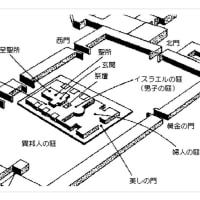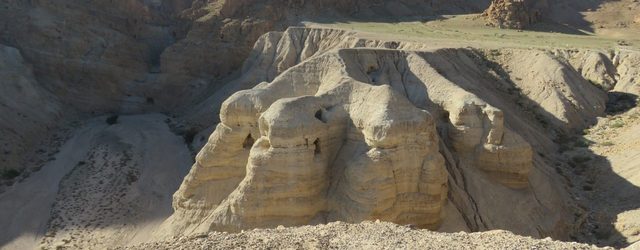1.文脈と背景
この詩篇も神をたたえるもので、146篇から続いています。しかしこの詩篇の特徴は、詩人が天と地に神を賛美するように呼びかけていることです。イスラエルの民にではありません。それは、礼拝者への呼びかけは、すでに詩篇146,147篇でなされているから、ということもあるでしょうし、イスラエルの子らが主を賛美することは当たり前のこと、という理解もありえます。ともあれ、ここで詩人は、さらに天と地に呼び掛け、被造物と一体となって、神に賛美を献げようとしているのです。
これはまさに、ヨハネが黙示録の中で描いた(7:9)終末における礼拝のイメージそのものです。パウロはローマ書の中で「被造物自体も、滅びの束縛から解放され、神の子どもたちの栄光の自由にあずかります」(ローマ8:21)と語っています。つまり主にある救いを待ち望んでいるのは、人間だけではありません。神に創られた生きとし生けるものすべてが「今に至るまで、ともにうめき、ともに産みの苦しみをして」(ローマ8:22)神による回復を待ち望んでいるのです。神の救いの計画は、人間のみならず、神に創られたありとあらゆるものに及ぶ、そしてその救いが完成する時には、皆がこぞって神を賛美し、礼拝する、それが万物の贖いの最終的な姿となるわけです。
2.天も地も主をたたえよ
具体的に2節、すべての御使いから始まり、日、月、輝く星、天と共に神を礼拝します(1-6節)。また、地に向かって、海の巨獣、淵、火、雹、雪、煙、あらし、山々、丘、木、鳥(7-10節)、そして、まだ神を呼び求めようとしない、地の王たち、国民、君主たち、若い男、女、年老いた者、幼い者(11-13節)に、主をほめたたえるように呼びかけられます。この広がりに注意すべきでしょう。しばしば教会は、魂の救いという言い方をしてきて、人間ばかりに注目しています。その実質信者の頭数を揃えるような働きをしてきたのではないかと思うところがあります。しかし、救いは、全被造物全体を視野に入れるものですから、この世界の様々な状況への関心をもつのが自然なことでしょう。そのような意味では、キリスト者が環境問題への敏感さを持つのも、間違ってはいません。神に被造物の管理を託され、被造物全体を含めた贖いの完成を願う思いがあるならば、資源問題、環境問題への心遣いがあり、そのための責任ある態度や行動も、起こりうるのです。
3.被造物と共に礼拝する
また礼拝は教会堂という建物の中に縛られるものではありません。それは、物理的な空間を突き抜けて、教派・教団を超えた、地上のすべての教会が集められた、いわば、目に見えない教会、普遍的教会に連なる営みです。しかしここで語られているのは、被造物すべてと共鳴する礼拝です。
しばしば野外礼拝をする教会もあります。それは、レクリエーション的な意味でなされる場合が多いでしょう。会堂を出て、自然の中にあって神を賛美し、神の御声を聞く。しかしそこに、自然と共に礼拝するという意識はないようです。聖書的には、自然と共に神を賛美し、ひれ伏す礼拝が求められていると言うべきでしょう。自然の中で行われるのではなく、神がお造りになった被造物とともに礼拝する。普段は意識できない詩篇148篇的な礼拝、すなわち、天と地にある被造物と一体の礼拝を味わう時なのです。
14節、「主は御民の角をあげられた」の「角」が何を示しているのかは明らかではありません。ただ分脈的には、捕囚帰還によってイスラエルの立場を回復させられたことを意味するのでしょうが、終末的な視点からすれば、それは、救い主(ルカ1:69)が起こされることを思わせます。
ともあれ、天と地を満たすあらゆる被造物と共に、そして、地上のあらゆる諸国民、諸民族、諸言語を持つ者が皆、共に主に向かって賛美し、礼拝をささげる日が待ち望まれます。黙示録に描かれた究極の礼拝のイメージが(7:9)思い出される詩篇です。
<クイズコーナー>
最初に、昨日のクイズです。ソロモンが神殿奉献の際に献げた羊の数は、何頭であったでしょうか?①1千頭、②1万2千頭、③12万頭。答は12万頭(1列王8:63)。では、今日の聖書クイズです。被造物の贖いについて、パウロが明確に語っているのは、新約聖書喉の箇所にあるでしょうか?①ローマ3:23、②ローマ8:21、③ローマ12:1、答えはまた明日。では今日もよき一日となりますように祈ります。
Psalm 148: Eschatological Worship Including Creation
1.Context and Background
This psalm also praises God and continues from Psalm 146. But what makes this Psalm unique is that the psalmist calls on heaven and earth to praise God. It is not to the people of Israel. This may be because the call to worshipers has already been made in Psalms 146 and 147, or it may be understood that it is natural for the children of Israel to praise the Lord. At any rate, here the psalmist is calling on heaven and earth to unite with creation in offering praise to God.
This is the very image of eschatological worship that John describes in the book of Revelation (7:9). Paul says in Romans, "The creation itself will also be delivered from the bondage of perdition, and will be set free in the glorious freedom of the children of God" (Rom. 8:21). In other words, it is not only human beings who await salvation in the Lord. Every living creature created by God "groaned together until now, and suffered birth pangs together" (Romans 8:22), longing for God's restoration. God's plan of salvation extends not only to human beings but also to all things created by God, and when that salvation is complete, everyone will praise and worship God in unison, which will be the final form of the redemption of all things.
2. Praise the Lord in heaven and on earth!
Specifically in verse 2, beginning with all the angels, the sun, the moon, the shining stars, and the heavens, worship God (vv. 1-6). And to the earth, He calls upon the giant beasts of the sea, the deeps, fire, hail, snow, smoke, storms, mountains, hills, trees, and birds (vv. 7-10), and the kings, nations, and princes of the earth, young men and women, old and young, who have not yet called upon God (vv. 11-13), to praise Him. We should note this spread. Often the church has been talking about the salvation of souls and focusing only on human beings. I think that the church has been working to get a headcount of believers. However, since salvation is a matter of concern for the whole of creation, it is natural that it should be concerned with the various situations in the world. In that sense, it is not wrong for Christians to be sensitive to environmental issues. If we are entrusted by God with the stewardship of creation and have a desire for the completion of redemption that includes the entire creation, then we can be mindful of resource and environmental issues, and responsible attitudes and actions toward these issues can occur as well.
3. worship with creation
Worship is not tied to the confines of a church building. It is an activity that transcends physical space, transcends denominations and groups, and brings together all the churches of the earth, so to speak, in an invisible church, a universal church. But what is being spoken of here is worship that resonates with all of creation.
Often there are churches that hold outdoor worship services. Often it is done in a recreational sense. They leave the synagogue and go out into nature to praise God and hear His voice. But there does not seem to be a sense of worshipping with nature. Biblically, we should say that worship is required to praise and bow down to God with nature. Worship with God's creation, rather than taking place in nature. It is a time to savor a Psalm 148-like worship that we are not normally aware of, a worship that is one with creation in heaven and on earth.
It is not clear what the "horn" in verse 14, "The Lord has lifted up the horn of his people," refers to. In context, it may refer to the restoration of Israel's position by the return of the captives, but from an apocalyptic perspective, it is reminiscent of the raising of the Savior (Luke 1:69).
At any rate, we look forward to the day when all creation, heaven and earth, and all the nations, peoples, and languages of the earth will join together in praise and worship to the Lord. This Psalm reminds us of the image of the ultimate worship described in the Book of Revelation (7:9).
<Quiz Corner>
First, yesterday's quiz. How many sheep did Solomon offer at the dedication of the temple? (1) 1,000, (2) 12,000, and (3) 120,000. The answer is 120,000 head (1 Kings 8:63). Now for today's Bible quiz. In which New Testament throat passage does Paul clearly speak of the redemption of creation? (1) Romans 3:23, (2) Romans 8:21, (3) Romans 12:1. Then I pray that today will be another good day.



















